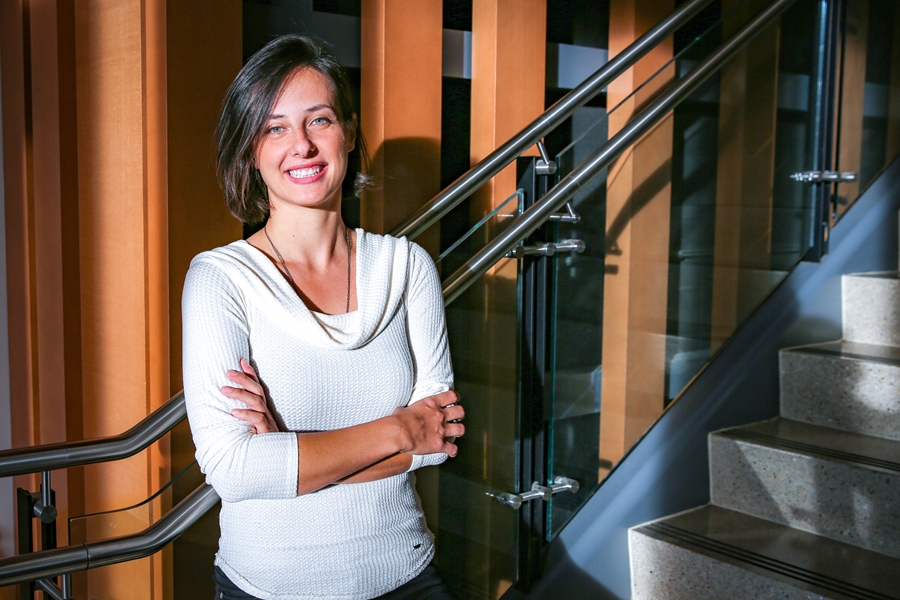Asya Ozkizilcik, a Post-Doctoral Fellow for the Department of Biomedical Engineering, has received an American Heart Association fellowship.
The postdoctoral fellowship will span over a two year duration in the amount of $136,000 to support a project regarding developing novel prosthetic replacement materials for calcific aortic valve disease (CAVD)— a condition in which calcium-rich nodules form on the aortic valve.
Currently, the main treatment options for CAVD are mechanical or bioprosthetic heart valve replacements; however, both come with limitations. Mechanical valves are durable materials; however, patients need to use blood-thinners for the rest of their lives to prevent blood-clot formation, which may cause malfunctioning of the valve and eventually lead to heart attack or stroke. These patients also need to be monitored closely as too thin blood increases the risk of bleeding. Bioprosthetic heart valves, or BHVs, are basically tissue valves obtained from animal donors, such as bovine (cow) or porcine (pig). BHVs are strong and flexible, and patients do not need to use any blood-thinning medications for BHVs. However, the life-time of BHVs are limited to 7-15 years because the valve goes into structural deformation and calcification. As pointed out by Ozkizilcik, "…we believe that there is an urgent need for durable and non-calcifying bioprosthetic heart valve replacements".
Towards this aim it was proposed to develop a novel bioprosthetic heart valve material that is made from collagen, a protein found abundant in human and animal bodies, and graphene oxide—a graphene-based material that gained great interest in biomedical field over the last decade. Previous research shows that bisphosphonates— a class of drugs that have been used to treat osteoporosis—may indirectly reduce vascular calcification. Thus, graphene oxide was modified with bisphosphonate and showed reduced calcification in porcine valve interstitial cells in our preliminary studies. "Now, we are very excited to extend these preliminary data by developing a collagen/modified-graphene oxide based three dimensional biomaterial and assessing cell-material interactions in-vitro and in-vivo", said Ozkizilcik.
Ozkizilcik's research focus has been developing novel biomaterials and innovative technologies related to tissue engineering and regenerative medicine. This includes organic/inorganic material synthesis, biomaterial surface functionalization and characterization as well as examining their applications for soft and hard tissue regeneration, neuroprotection, and drug delivery.
"I am very excited about the opportunity to explore biomaterials-based approaches to develop alternative valve materials to current bioprosthetic valves and to help future patients fight CAVD," said Ozkizilcik.
"Asya will be working to develop novel, more durable materials for heart valve replacements using anti-calcific graphene oxide-based technology," said Kartik Balachandran, Associate Professor and postdoctoral mentor for Ozkizilcik, "This technology for developing heart valve prosthetics using graphene oxide and bisphosphonate has not been explored and I am very excited that Asya has been awarded an AHA postdoctoral fellowship to explore this area of research."
Raj Rao, professor and department head of biomedical engineering, said the award reflected well on Ozkizilcik, Balachandran and the department.
"Asya's receipt of the AHA postdoctoral fellowship is an indication of the significance of the ongoing cardiovascular research programs in the department," he said. "It also demonstrates the caliber of our trainees and the important guidance provided by Dr. Balachandran."
Additional details of the biomedical engineering cardiovascular research programs can be found on the Cardiovascular Research page.
Topics
Contacts
Travis Hefley, project/program specialist
Department of Biomedical Engineering
479-575-6022,
